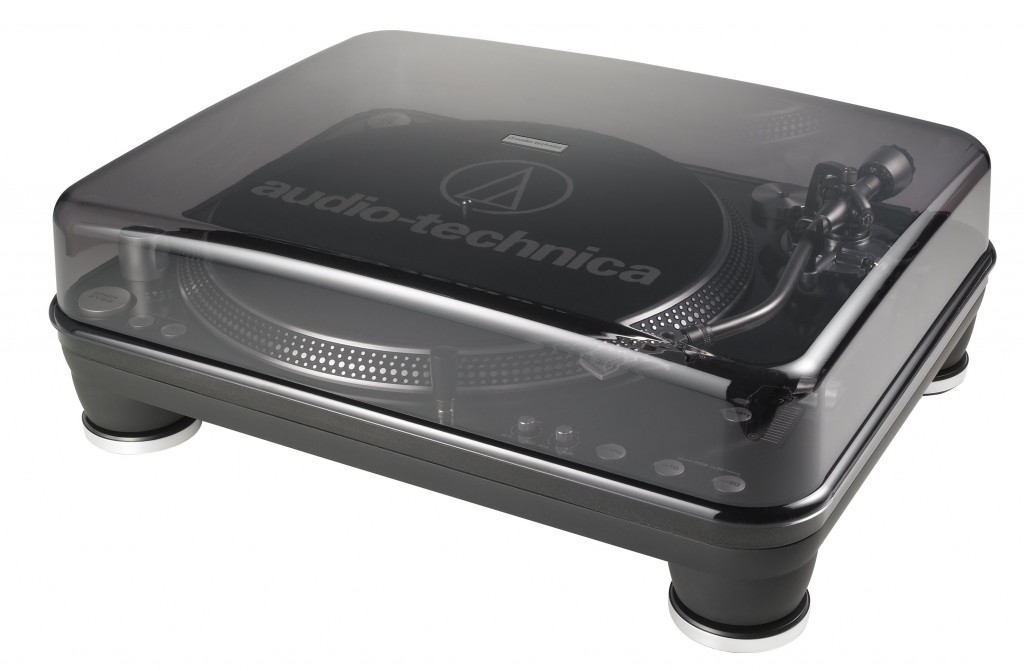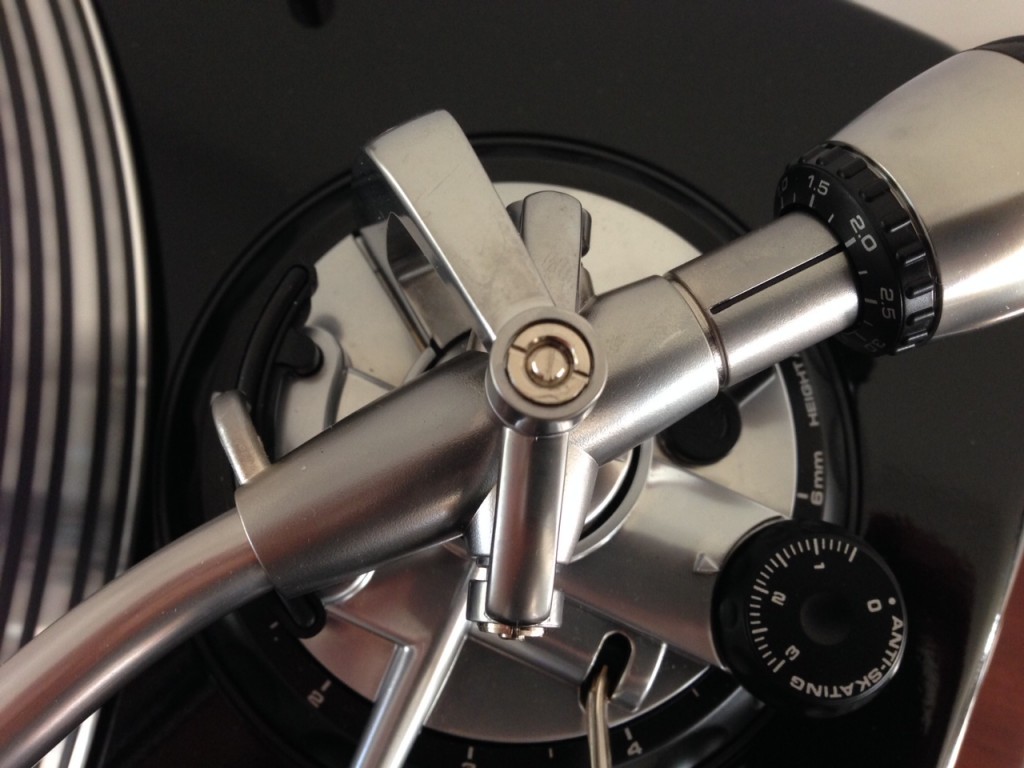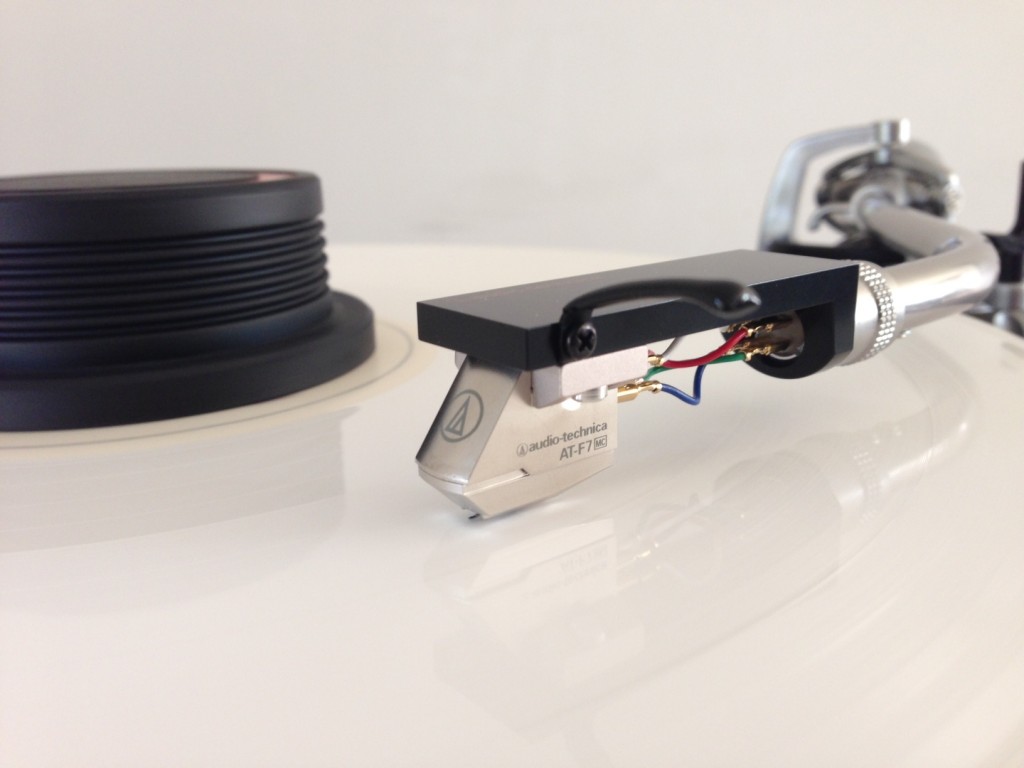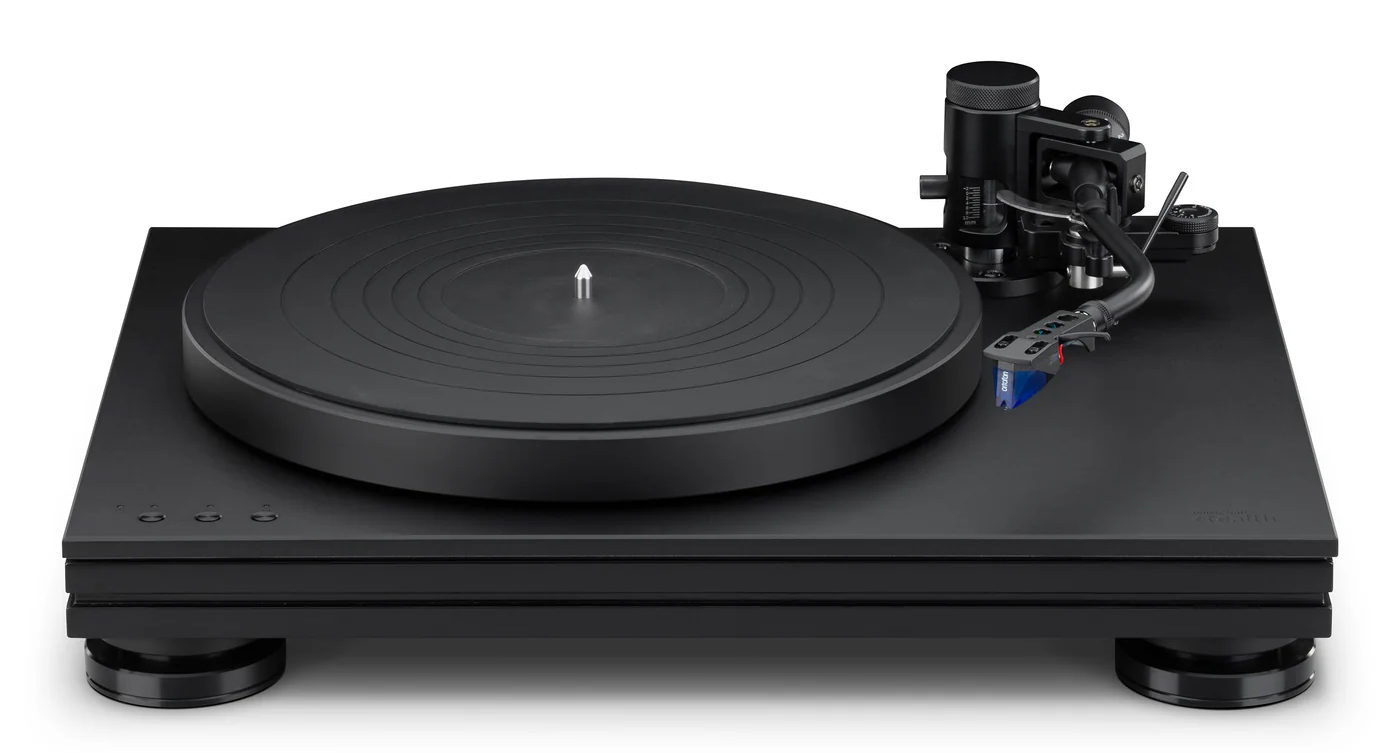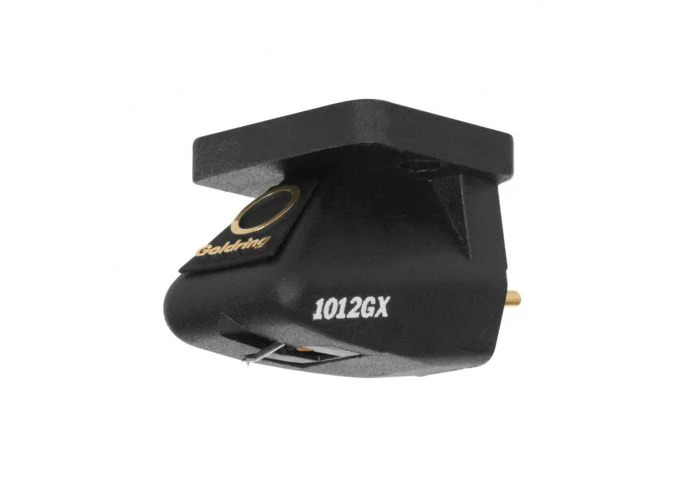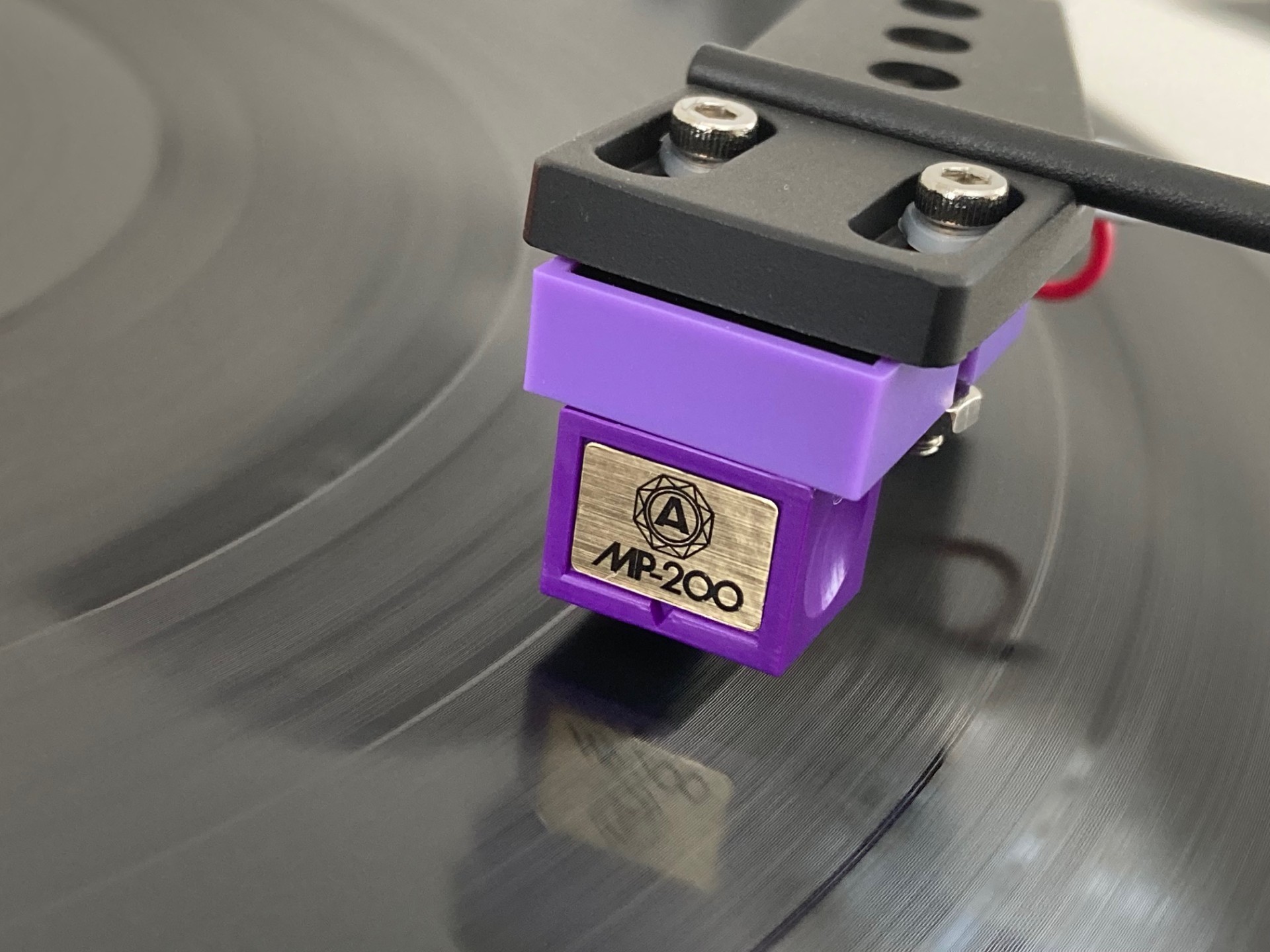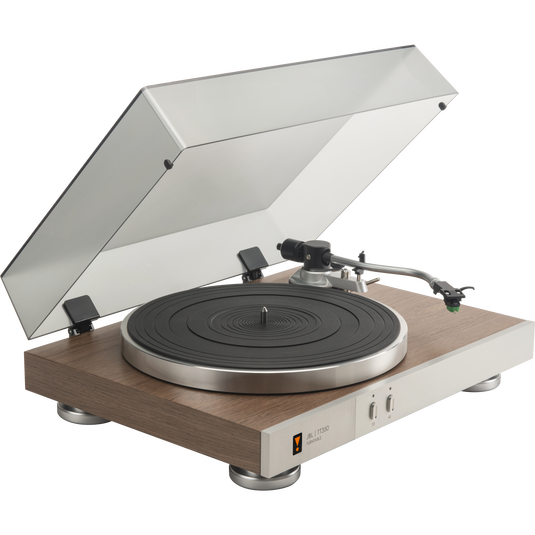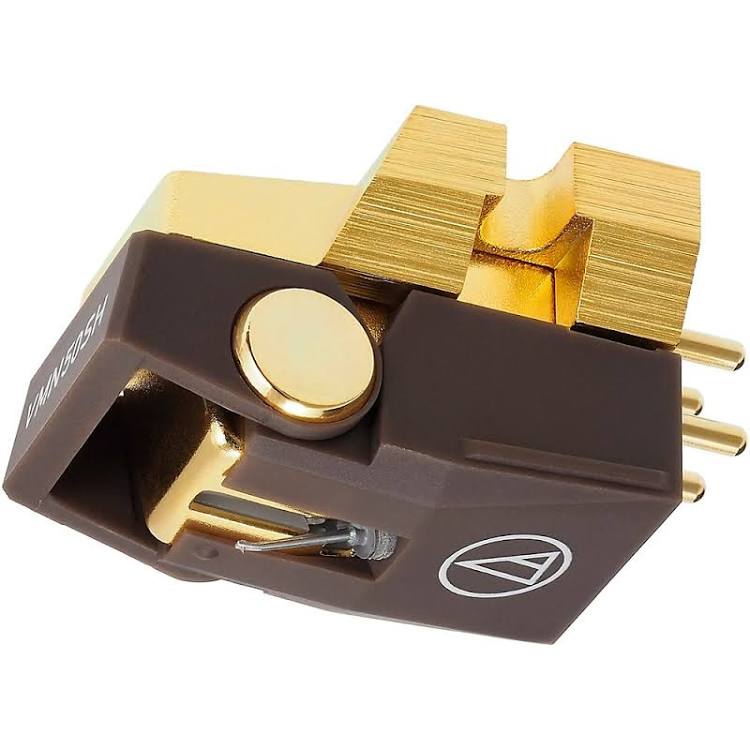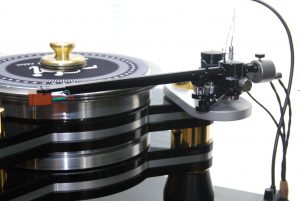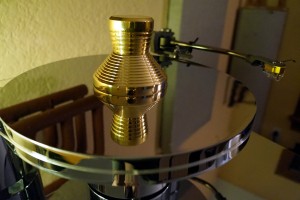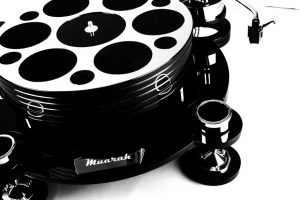The only thing "entry level" about Audio-Technica's new AT-LP1240-USB is the price. MSRP is $530, and the street price is closer to $450. It's easily competitive with any source I can think of for that money—analog or digital—and it runs rings around some of them. Sorry if that's vague, but I wanted to let you know upfront that this is one of the best values going.
Audio-Technica won't confirm this, but production of the AT-LP1240-USB is farmed out to a massive specialist turntable manufacturer in Asia. That's no bad thing since they churn ‘em out by the gazillions for big-name brands—some of which might surprise you. Yep, the same basic goodness here has sold for a lot more money under other, more "high end" nameplates.
See that tonearm? Looks suspiciously like the one on Denon's $2500 DP-A100 anniversary model from a few years back. And it's respectable too, free of obvious friction and with tons of adjustability built in. In fact, this is a sturdy product all around for the money. The controls respond with precision, or at least a convincing degree of faux precision. It has every convenience a DJ could possibly expect, along with some nice touches like a detachable IEC power cord and RCA outputs instead of captive audio cables. (Feel free to upgrade, but the cable Audio-Technica supplies is a cut above the usual freebie and will certainly suffice.) The feet even offer some isolation and are adjustable—a nice touch.
Like the classic and much missed Technics 1200 it's patterned after, this is fun and convenient to use. It gets up to speed nearly instantly. There isn't a dry record cleaning brush on earth that will slow the platter down thanks to the high-torque motor, something that can't be said for belt drives in this price range. Did I mention it's direct drive? It is, so it's basically zero maintenance. However, because it's meant for DJs, it comes only with a thin slipmat. You'll want to replace that immediately. The Herbie's Way mat (reviewed HERE) I liked on the Technics performed admirably here too, but there's no shortage of other options from cork to leather to sorbothane.
Audio-Technica must have confidence in their quality control because the review sample was factory sealed, shrink-wrapped and clearly identical to what you'd get if you bought one yourself. The packaging, by the way, was superb. I'm disappointed the otherwise good manual lacks instructions for cartridge alignment, nor is a template or overhang gauge provided. However, the actual process of mounting a cartridge is easy thanks to the detachable headshell.
I tried this in a few different configurations ranging from entry-level (a vintage Philips PA-50 integrated amp with onboard MM/MC phono and Polk Audio Monitor 50 floorstanding speakers) to mid-range (Rega and PrimaLuna integrated amps and Spendor S5e loudspeakers). I even briefly tried it with my $2799 Avid Pulsus phono stage (reviewed HERE) just for fun. Cartridges (sold separately) included Audio-Technica's AT-120E/T and AT440MLa moving magnets, both good matches, and the AT-F7, an excellent, budget low-output moving coil.
The overall impression is best described as analog warmth overlaid with a sheen of digital crispness. There's excellent separation of instruments. There's also a sense of confidence, drive and clarity uncommon at this price point. It's an exciting listen, particularly with the MC cartridge installed—possibly fatiguing in the wrong system, but easily solvable by swapping in a cartridge with a warmer, more relaxed presentation like the Shure M97xe or Grado Gold.
What's important to understand, relative to its competition, is that the AT-LP1240-USB lacks their most significant limitations. Where the MDF belt-drives are generally midrange-focused, this is not; it has frequency extension approaching products at the next level. Where the belt-drives run out of steam, this offers real dynamics, scale and impact. You're still limited in terms of how much resolution there is for every note, and fine textures are glossed over, but because there's a bit more air and separation, it feels like you're getting more than you really are.
You'd expect a DJ table to do electronic music well, and the AT-LP1240 was suitably propulsive and engaging playing John Carpenter's Lost Themes (Sacred Bones; SBR-123). It can also do delicacy, as demonstrated on the fiddles, ukuleles, washboards and such on Mark Knopfler's Tracker (Verve/Virgin EMI4716982). Generally speaking, there was more perceived instrumental detail than actual atmosphere on live jazz recordings, but classical music soared. I'm listening to a bit of the old Ludwig van right now, Triple Concerto op 56 (Deutsche Grammophon; 2531 262), and it's thrilling. The only significant downside is that it treats surface noise as part of the music. Anything but the quietest, cleanest, most pristinely pressed record will exhibit more prominent pops and ticks than you'll get with the Regas, Pro-Jects and Music Halls. That's something to consider if you're used to quiet digital backgrounds, or if your record collection is on the rough side. (This is generally endemic to most affordable direct drive designs; I've experienced it to varying degrees with various Technics, Sony and Denon models through the years.)
Compared to my Avid Diva II—which costs about ten times more—the AT-LP1240-USB simply gets less marrow out of the bone. What sounds lifelike and natural on the Avid is candy-coated or sometimes hard by comparison. There's more atmosphere, a much more convincing soundstage, greater frequency extension and every other improvement you'd expect for the money. That's not surprising. What is, however, is how little I missed what the Avid clearly did better.
There's an okay built-in phono preamp, but if you're reading this you won't be satisfied and should aim for better. A quick look inside suggests that it cannot be completely bypassed and stays in the signal path to some degree even when defeated. If you're handy or know a good tech, my strong suggestion is to physically remove it. Also, some hum is present with the unit powered on. It wasn't noticeable until I upped the phono stage gain for the 0.35mV AT-F7 cartridge and really cranked up the volume. Wiring the tonearm output directly to the RCA jacks would likely eliminate this. Or, stick with high-output cartridges and it's not an issue.
I wish the dustcover had hinges for convenience sake, but we all know it's better to remove it completely before playing records anyway. The cueing light—a nice but totally unnecessary feature—isn't the slick pop-up type Technics users would expect, but rather, a chintzy plug-in affair. Also, the platter had a tiny cosmetic wobble that did not affect performance. I didn't try the USB output or included software because that sort of thing just ain't my bag, baby.
If you're willing to invest a few extra bucks, this benefits from tweaks. In addition to the mat upgrade (essential) and the tonearm output rewire (purely optional but helpful), aftermarket headshells from the Sumiko, Orsonic and Audio-Technica seemed to offer a very slight improvement in treble smoothness. The Audio-Technica AT-618 record weight, in conjunction with the Herbie's Way mat, tightened up the overall presentation and quieted backgrounds a little.
If the AT-LP1240-USB merely sounded good, it would be a solid value and totally recommendable. But it's actually much better than that. I gave it an absurdly thorough shakedown for an entry-level product. It's testament to how good this inexpensive little thing is that it kept me searching for minor criticisms. If $500 were my limit for a turntable, this is what I'd buy…but I'd also give it a careful listen before spending twice as much. Enthusiastically recommended—hifi at a fun-size price.
AT-LP1240-USB
MSRP: $530
Audio-Technica




